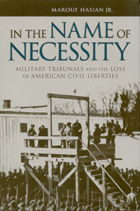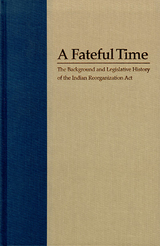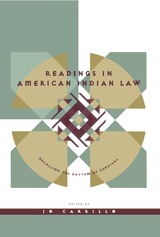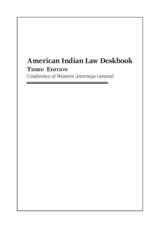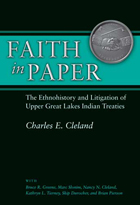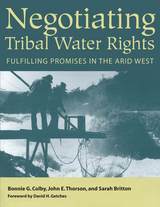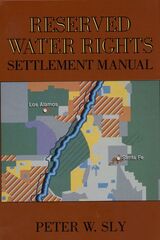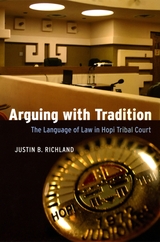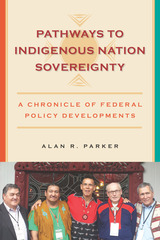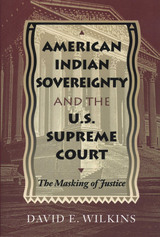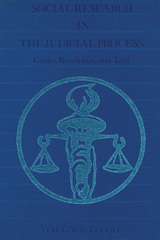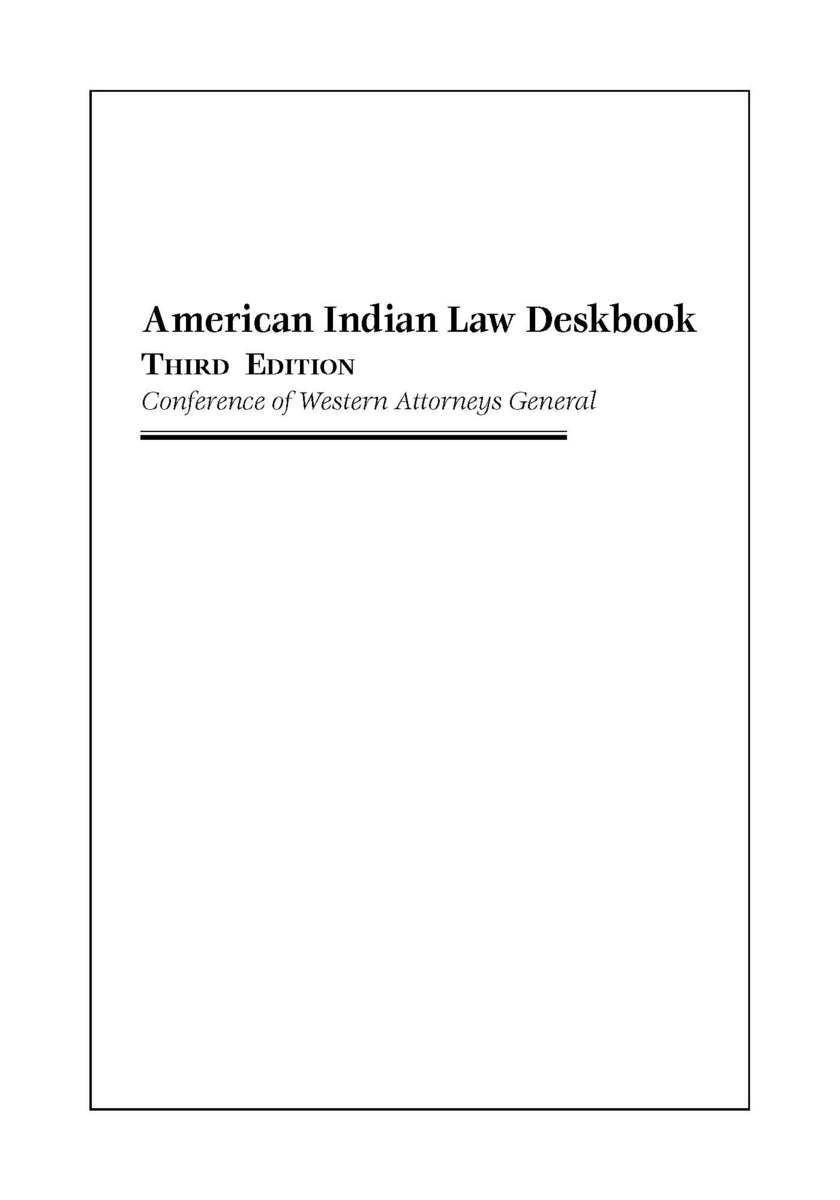
This title is no longer available from this publisher at this time. To let the publisher know you are interested in the title, please email bv-help@uchicago.edu.
This title is no longer available from this publisher at this time. To let the publisher know you are interested in the title, please email bv-help@uchicago.edu.
Amer Indian Law Deskbook 3ed
by Hardy Conference of Western Attorneys General
University Press of Colorado, 2004
Cloth: 978-0-87081-756-4
Library of Congress Classification KF8205.A76 2004
Dewey Decimal Classification 342.730872
Cloth: 978-0-87081-756-4
Library of Congress Classification KF8205.A76 2004
Dewey Decimal Classification 342.730872
TOC | REQUEST ACCESSIBLE FILE
TABLE OF CONTENTS
Contents Foreword to Third Edition xvii Foreword to Second Edition xix Foreword to First Edition xxi Chapter 1 Federal Indian Law Policy: Origins and Legal Development 1 I. Judicial Foundations of Federal Indian Policy 1 A. The Marshall Trilogy 1 B. Federal Common Law Application of Marshall Trilogy Principles 6 1. Tribes' extraconstitutional sovereign status 7 2. Plenary power doctrine 8 3. Indian trust doctrine 11 4. Indian canons of construction 19 II. Evolution of Federal Indian Policy: Congress and the Executive Branch 23 A. The Trade and Intercourse Acts Period: 1789 to 1887 24 B. The General Allotment Act Period: 1887 to 1934 30 C. The Indian Reorganization Act and Subsequent Legislation: 1934 to the Present 34 Chapter 2 Indian, Indian Tribe, and Indian Country 41 I. Indian 41 A. Federal Law and the Definition of Indian 42 1. Federal common law-based Indian status 42 2. Statutorily based Indian status 45 B. Indian Status and the Fifth Amendment's Due Process Clause 46 II. Indian Tribe 51 III. Indian Country 57 A. Reservations 58 B. Dependent Indian Communities 59 C. Trust Allotments 61 D. Trust Land and Indian Country Status 62 E. Land Claims Settlement Lands 64 Chapter 3 Indian Land and Property: Title and Use 65 I. Sources of Tribal Land Occupancy Rights 65 A. Aboriginal Title-Based Occupancy Rights 66 B. Nonaboriginal Title-Based Occupancy Rights 73 II. Reservation Diminishment 76 III. Ownership of Navigable Waters 83 A. Equal Footing Doctrine Principles 83 B. The Equal Footing Doctrine and Indian Reservations 86 IV. Leasing Indian Natural Resources and the Government's Trust Responsibilities 90 A. Mineral Leasing 91 B. Farm Leases 94 C. Grazing Leases 96 D. Miscellaneous Leases 98 E. Timber Harvesting 100 F. Rights-of-Way 103 G. The Government's Trust Responsibility for Managing Indian Land 105 V. Fractional Property Interests 108 VI. Indian Graves and Cultural Items 112 Chapter 4 Criminal Law 119 I. Indian Country Crimes 120 A. Federal Crimes 120 1. General Crimes Act 120 2. Major Crimes Act 125 3. Federal Juvenile Delinquency Act 127 B. Tribal Crimes 128 C. State Crimes 131 1. State criminal jurisdiction under Public Law 280 131 2. General state criminal jurisdiction outside of Public Law 280 136 D. Summary Analysis 137 1. Crimes committed by an Indian against an Indian 137 2. Crimes committed by an Indian against a non-Indian 138 3. Crimes committed by a non-Indian against an Indian 138 4. Crimes committed by a non-Indian against a non-Indian 138 5. Victimless crimes committed by Indians 138 6. Victimless crimes committed by non-Indians 138 II. Special Questions of State and Federal Authority in Indian Country 138 A. Liquor-Related Offenses 139 B. Criminal Conduct Occurring Within and Without Indian Country 141 C. Incidental Law Enforcement Activities 142 Chapter 5 General Civil Regulatory Jurisdiction 146 I. Congressional Exercise of Indian Commerce Clause Power 148 A. General Scope of Power's Exercise 148 B. Congressional and Tribal Regulation of Nonmembers 149 1. Congressional delegation 150 2. Congressional deferral 152 3. Congressional restoration of inherent authority 153 II. Retained Inherent Tribal Authority 157 A. The Road to Montana 158 1. The 1978 trilogy 158 2. Colville 161 B. The "Pathmarking" Montana 162 C. Application of Montana Standards 163 1. Merrion 163 2. Brendale 164 3. Bourland 166 4. Strate 170 5. Atkinson and Hicks 172 III. State Authority in Indian Country 179 A. State Regulation of Nonmembers 180 1. Bracker interest-balancing standards 180 2. The Williams self-governance standard 186 B. Direct State Regulation of Resident tribe or Its Members 187 Chapter 6 Civil-Adjudicatory Jurisdiction 190 I. Federal Adjudicatory Jurisdiction 190 A. 28 U.S.C. 1362: Special Jurisdictional Authorization for Indian Tribes 191 B. 28 U.S.C. 1331 and 1332: Federal Question Exhaustion and Diversity Deferral Requirements 196 1. National Farmers Union exhaustion and Iowa Mutual deferral 196 a. The basic rules 196 b. Exceptions to the basic rules 200 2. Unresolved exhaustion and deferral issue: The need for an existing tribal court proceeding 205 a. The "reservation affairs" approach 205 b. The interference with an existing tribal court proceeding approach 211 II. Tribal Adjudicatory Jurisdiction 214 A. The Precursor Decisions: National Farmers Union and Iowa Mutual 216 B. The Defining Decisions: Strate and Hicks 219 III. State Adjudicatory Jurisdiction 229 A. Nonstatutory Adjudicatory Jurisdiction 229 B. Public Law 280 Jurisdiction 236 IV. Recognition of Foreign Judgments: Full Faith and Credit or Comity 241 Chapter 7 Tribal Sovereign Immunity and the Indian Civil Rights Act 247 I. Sovereign Immunity From Suit 248 A. Doctrinal Foundation: Fidelity & Guaranty Through Manufacturing Technologies 248 B. Waiver and Officer Suits 257 1. Waiver 258 a. By agreement 258 b. In litigation 262 c. By corporate action 264 2. Officer capacity suits 266 II. The Indian Civil Rights Act 269 A. The ICRA's Provisions 269 B. Santa Clara Pueblo v. Martinez 273 C. Post-Martinez Federal Court Enforcement 274 D. Application of ICRA Relief by Tribal Courts 277 Chapter 8 Indian Reserved Water Rights 280 I. Substantive Elements of Reserved Water Rights 281 A. Historical Background 281 B. Non-Indian Reserved Water Right Cases 285 C. Purpose of the Reservation 287 D. Quantity of Reserved Water Right 292 1. Historical approaches 292 2. The practicably irrigable acreage standard 294 3. The future of the PIA standard 296 4. Standards for quantifying nonagricultural reserved rights 300 E. Priority of Reserved Water Right 300 F. Miscellaneous Issues 302 1. Appurtenant waters 303 2. Groundwater 303 3. Allotments and reacquired lands 305 G. Change of Use and Transfer of Reserved Water Rights 306 1. Change of use 306 2. Transfer of tribal reserved water rights 309 II. Jurisdictional Issues 311 A. State Legal Systems Relating to Water Rights 311 1. State regulation of water rights 312 2. Adjudication of water rights 314 B. The McCarran Amendment and State Adjudication of Reserved Rights 315 1. Nature of state adjudications to which McCarran Amendment applicable 318 2. Federal court abstention 321 3. Removal to federal court 324 C. The McCarran Amendment and State Administration of Water Rights 325 D. Inherent Tribal Authority Over Water Rights and Resources 328 1. Regulatory authority based on tribal proprietary interests in water 328 2. Tribal regulatory authority over appropriative water rights and unappropriated waters on reservation 330 Chapter 9 Fish and Wildlife Regulation 333 I. Constitutional Framework 333 II. Fishing and Hunting Within Indian Country 336 A. Fishing and Hunting by Tribal Members 336 B. Fishing and Hunting by Non-Tribal Members 337 III. Fishing and Hunting Outside Indian Country 340 A. General Principles 340 B. Aboriginal Rights 341 C. Federally Secured Off-Reservation Indian Fishing and Hunting Rights 342 1. The holder of the right 343 2. The geographic scope of off-reservation federally- secured rights 344 a. "Usual and accustomed" fishing places in the Stevens/Palmer treaties 345 b. Treaty hunting rights on "open and unclaimed lands" and "unoccupied lands of the United States" 347 c. Treaty-based right of access as easement and property right 348 d. Preemption and conservation necessity 349 e. Quantifying treaty rights: Securing a "fair share" 351 f. Burdens of proof in state-court prosecutions 357 3. Off-reservation treaty rights and habitat 358 a. Phase II of United States v. Washington 358 b. Other habitat litigation 361 IV. Federal Regulation of Fishing and Hunting 362 A. Endangered Species Act 363 B. Magnuson-Stevens Fishery Conservation and Management Act 365 C. Pacific Salmon Treaty Act 366 D. Marine Mammal Protection Act 367 E. Whaling Convention Act 367 F. Bald and Golden Eagle Protection Act 368 G. Migratory Bird Treaty Act 369 H. Bureau of Indian Affairs Management Authority 369 I. Lacey Act 370 Chapter 10 Environmental Regulation 371 I. Tribal and State Programs 373 A. Tribal Regulatory Authority 00 B. State Regulatory Authority in Indian Country 00 II. EPA-Administered Federal Regulatory Programs 00 A. EPA's Implementation of Federal Environmental Laws on Indian Reservations 00 1. Procedure for tribal program approval 00 2. EPA's Indian policy and interpretation of federal Indian law 00 B. Federal Environmental Laws Providing for State or Tribal Program Assumption 00 1. Clean Water Act 00 2. Safe Drinking Water Act 00 3. Clean Air Act 00 4. Resources Conservation and Recovery Act 00 5. Federal Insecticide, Fungicide, and Rodenticide Act 00 C. Federal Environmental Laws Not Providing for Direct Program Assumption by States or Tribes 00 D. Tribal Liability for Violation of Federal Pollution Control Statutes 00 III. Non-EPA Federal Environmental Programs 00 A. Hazardous Materials Transportation Act 00 B. Surface Mining Control and Reclamation Act 00 Chapter 11 Taxation in Indian Country 00 I. Tribal Taxation Authority 00 II. State Taxation Authority 00 A. General Principles 00 1. Taxation of tribes and tribal members 00 2. State taxation of nonmembers 00 B. Validity of Specific Types of State Taxes 00 1. Natural resource taxes 00 2. Personal and real property taxes 00 a. Taxes on tribal personal property 00 b. Taxes on tribal real property 00 c. Taxes on nontribal property 00 3. Motor fuel taxes 00 4. Non fuel sales and excise taxes 00 a. Liquor taxes 00 b. Cigarette taxes 00 c. Gross receipts taxes 00 5. Income taxes 00 III. Federal Taxation Authority 00 Chapter 12 Indian Lands Gaming 00 I. Pre-IGRA Regulation of Indian Country Gaming 00 A. Federal Regulation 00 B. State Regulation 00 II. The Indian Gaming Regulatory Act 00 A. Geographical Scope 00 B. Classes of Gaming 00 1. Class I gaming 00 2. Class II gaming 00 a. Bingo and related gaming 00 b. Banking and nonbanking card games 00 c. Electronic or electromechanical facsimiles 00 d. Grandfathered card games 00 e. Grace periods 00 3. Class III gaming 00 C. Requirements for Lawful Indian Lands Gaming 00 1. Class I gaming 00 2. Class II gaming 00 a. Requirements for lawful gaming 00 i. State-law compliance 00 ii. Ordinance requirement 00 b. The Commission's responsibilities 00 c. State regulatory authority 00 3. Class III gaming 00 a. Ordinance requirement 00 b. State-law condition requirement 00 c. Tribal-state compact or secretarially prescribed procedures requirement 00 i. Authority to enter into compacts 00 ii. Compact provisions and approval 00 iii. Good-faith litigation 00 D. Federal Civil and Criminal Enforcement Authority 00 Chapter 13 Indian Child Welfare Act 00 I. ICWA Applicability 00 A. "Child Custody Proceeding" 00 1. General scope 00 2. Existing Indian family doctrine 00 B. "Indian Child" Status 00 1. Multiple tribal membership and unwed fathers 00 2. "Reason to know" 00 II. Jurisdiction Under the ICWA 00 A. Exclusive Tribal Jurisdiction Over All Child Custody Proceedings 00 B. Preferred Tribal Jurisdiction Over Foster Care Placement and Parental Rights Termination Proceedings 00 1. General scope 00 2. Notice requirements 00 3. Good cause not to transfer 00 III. State Court Adjudication of Child Custody Proceedings: The Merits 00 A. Involuntary Proceedings 00 B. Voluntary Proceedings 00 C. Placement Preferences 00 IV. Collateral Attack Upon State Court Decrees 00 V. Full Faith and Credit Requirements 00 VI. Rights of Adult Adoptees 00 Chapter 14 State-Tribal Cooperative Agreements 00 I. Conduct of Government-to-Government Relations 00 II. Governmental Authority for Entering State-Tribal Cooperative Agreements 00 A. Tribal Authority 00 1. Tribal law 00 2. Federal law 00 B. State Authority 00 III. Subject Areas Appropriate for State-Tribal Cooperative Agreements 00 A. Environmental Issues 00 1. Legislation authorizing tribal responsibility over environmental programs 00 2. Hazardous or solid waste disposal programs 00 B. Resource Conservation 00 C. Taxation Issues 00 D. Law Enforcement Activities 00 E. Quantification of Reserved Indian Water Rights 00 IV. Considerations for Negotiating Cooperative Agreements 00 A. Find a Common Ground 00 B. Maintain Theme of Equal Partnership and Respect 00 1. Learn about the tribe 00 2. Clarify approval protocols 00 3. Listen 00 4. Be professional and courteous 00 C. Attempt Compromise Through Creative Cross-Issue Development 00 D. Avoid Demanding Jurisdictional Concessions 00 E. Involve in the Process All Parties Who Will Be Affected by the Agreement 00 F. Prepare to Be Flexible and Creative 00 G. Special Considerations 00 1. Confidentiality/public records laws 00 2. Dispute resolution and waivers of sovereign immunity 00 V. A Case Study: Colorado Ute Water Rights Agreement 00 VI. State-Tribal Agreements: A Representative Sample 00 A. Environmental Protection 00 1. Clean Air Act implementation agreement between Puget Sound Air Pollution Control Agency and Puyallup Tribe of Indians 00 2. Agreement between Assiniboine and Sioux Tribes and State of Montana for regulation and enforcement of pesticide use on the Fort Peck Reservation 00 3. Agreement between Assiniboine and Sioux Tribes and State of Montana for the regulation of underground storage tanks on the Fort Peck Reservation 00 4. Hazardous waste agreement between Menominee Tribe and State of Wisconsin 00 5. Water Quality Management Plan implementation agreement between Colville Tribe and State of Washington 00 B. Natural Resources 1. Hunting and fishing cooperative agreement between Ute Indian Tribe and State of Utah 00 2. Hunting and fishing settlement agreement between Southern Ute Tribe and State of Colorado 00 3. State-tribal cooperative agreement between Confederated Salish and Kootenai Tribes of the Flathead Reservation and Montana Department of Fish, Wildlife and Parks 00 4. Puget Sound Salmon Management Plan 00 5. Fort Berthold oil and gas agreement 00 6. Agreement between counties of Uintah and Duchesne, State of Utah, and Ute Indian Tribe of the Uintah and Ouray Reservation 00 C. Taxation Agreements 00 1. Agreements between State of Washington and Indian tribes for purchase and resale of liquor 00 2. Settlement agreement between State of Washington, United States, and tribes exercising treaty fishing rights in State of Washington 00 3. Settlement agreements between State of Washington and Yakima Indian Nation, Lummi Indian Nation, and Confederated Tribes of the Colville Reservation concerning motor vehicle fuel taxation 00 D. Quantification of Water Rights 00 E. Law Enforcement 00 F. Delivery of Social Services 00 1. Indian child welfare services agreement between State of Utah and Navajo Nation 00 2. Agreement for provision of benefits of Special Supplemental Food Program for Women, Infants, and Children between Chippewa Cree Tribe of the Rocky Boy's Reservation and State of Montana 00 3. Weatherization contracts between State of Montana and various tribes 00 4. Agreement between State of New Mexico and Navajo Nation for child support enforcement 00 Table of Cases 00 Table of Statutes and Codes 00 Bibliography 00 Index 00
Library of Congress Subject Headings for this publication: Indians of North America Legal status, laws, etc
REQUEST ACCESSIBLE FILE
If you are a student who cannot use this book in printed form, BiblioVault may be able to supply you with an electronic file for alternative access.
Please have the accessibility coordinator at your school fill out this form.
It can take 2-3 weeks for requests to be filled.
See other books on: Indians of North America | Legal status, laws, etc
See other titles from University Press of Colorado
Nearby on shelf for Law of the United States / Federal law. Common and collective state law. Individual states:
9780226751146
9780871545510







